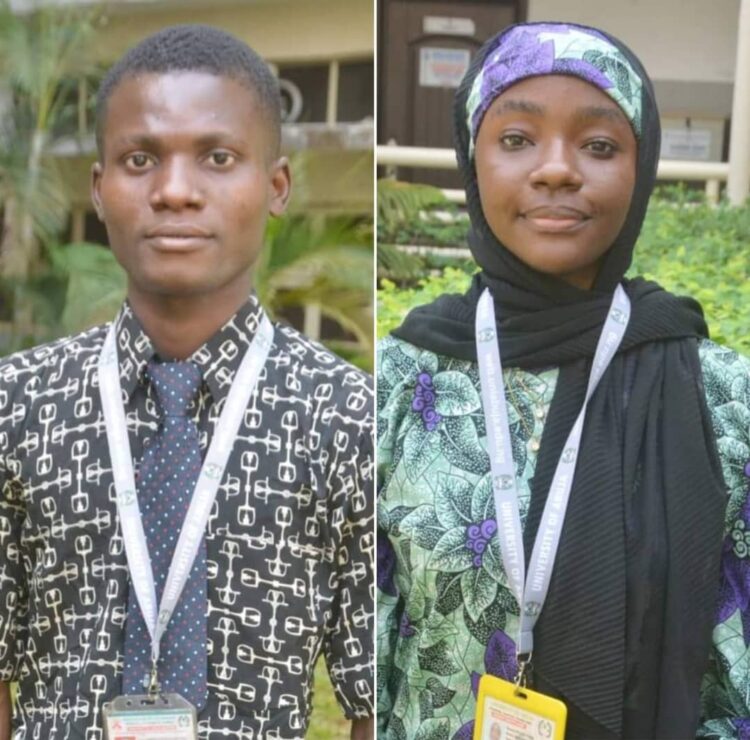Two undergraduate students from the University of Abuja (UniAbuja) have been awarded a total grant of ₦1,522,980 to conduct research in their respective thematic areas.
The grants, totaling over a million naira, signify a significant milestone for the students and underscore UniAbuja’s commitment to fostering innovation and academic excellence.
Tosin and Halima, both students of the Faculty of Veterinary Medicine at UniAbuja, emerged as recipients of the prestigious grants, which were awarded by the University’s Centre for Undergraduate Research (CUR). The grants will enable Tosin and his team to explore the use of low green technology for the preservation of beans and maize, with a focus on enhancing food security. Meanwhile, Halima Idris and her co-researchers will investigate the efficacy of using orange peels as repellents for mosquitoes, aiming to contribute to efforts in combating mosquito-borne diseases.
The announcement of the grant recipients was made through a post on UniAbuja’s official Facebook page, garnering widespread recognition and praise for the students’ innovative research proposals. The University lauded the accomplishments of Tosin and Halima, highlighting the importance of their research endeavors in addressing critical issues related to food security and public health.
Tosin’s research project holds significant implications for agricultural practices and food preservation techniques. By leveraging low green technology, Tosin and his team aim to develop sustainable methods for prolonging the shelf life of beans and maize, thereby mitigating post-harvest losses and ensuring food security for communities. Their research aligns with global efforts to promote sustainable agriculture and combat hunger in resource-constrained regions.
Similarly, Halima Idris’ research project addresses a pressing public health concern – mosquito-borne diseases. With the increasing prevalence of mosquito-borne illnesses such as malaria and dengue fever, there is a growing need for effective mosquito repellents. Halima and her team’s innovative approach of utilizing orange peels as natural repellents has the potential to offer a cost-effective and eco-friendly solution to mosquito control, particularly in regions where access to conventional repellents is limited.
The grants awarded to Tosin and Halima exemplify UniAbuja’s commitment to supporting undergraduate research initiatives and fostering a culture of innovation among its student body. Through the Centre for Undergraduate Research (CUR), the University provides students with opportunities to engage in hands-on research experiences, develop critical thinking skills, and contribute to knowledge creation in their respective fields.
In addition to the financial support provided by the grants, recipients will benefit from mentorship and guidance from experienced faculty members, enabling them to navigate the research process effectively and maximize the impact of their projects. The grants also serve as a testament to the academic prowess and ingenuity of UniAbuja’s students, positioning them as future leaders and change-makers in their chosen fields.
As Tosin and Halima embark on their research journeys, they carry with them the responsibility to uphold the highest standards of academic integrity and excellence. Their efforts have the potential to yield significant advancements in agricultural technology and public health, ultimately contributing to the socio-economic development of Nigeria and beyond.
In conclusion, the grants awarded to Tosin and Halima underscore UniAbuja’s commitment to empowering students and fostering research-driven solutions to pressing societal challenges. Through their innovative research projects, Tosin and Halima exemplify the spirit of inquiry and dedication to excellence that characterizes UniAbuja’s student community.










Join our Channel...